Entertainment
Will You Pledge Your Love to An Incubus?
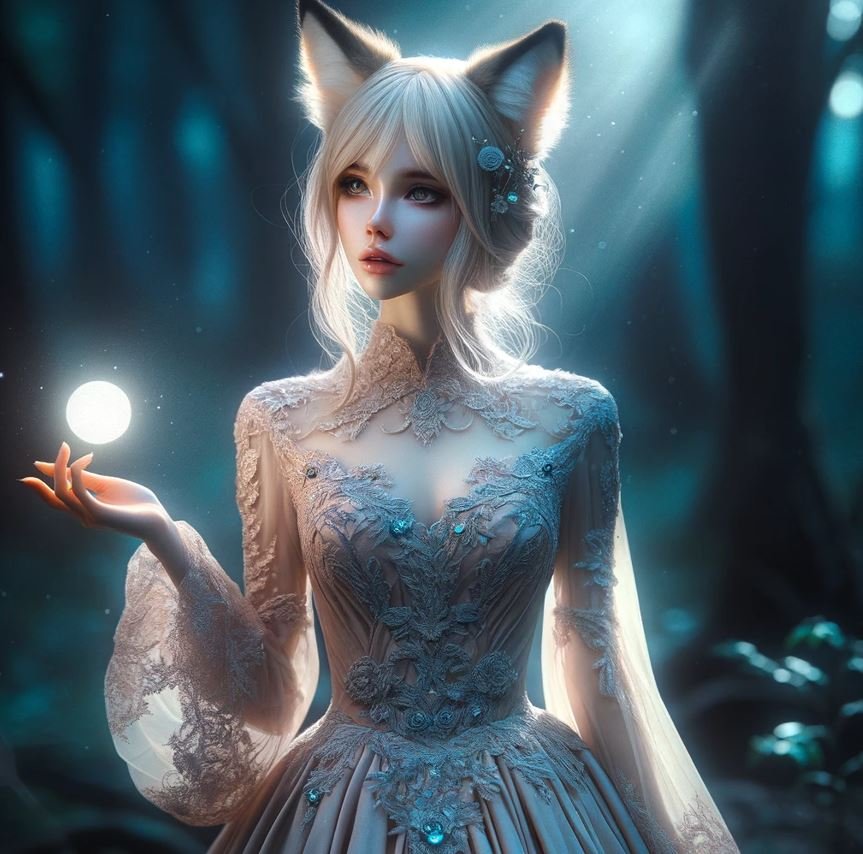
Embark on a Manga Journey of Forbidden Love with “Pledge Your Love to an Incubus”
Definitions and Origins
Historical Origins
The concept of the incubus, a male demon believed to lie upon and engage in sexual activity with sleeping women, traces back to medieval European folklore. These tales often served as explanations for unexpected pregnancies and were used to describe nightmares.
Characteristic Features
Incubi are typically described as shadowy, seductive figures that can transform into attractive men to entice their victims. They possess supernatural strength and the ability to become invisible. Many legends also attribute them with the power to induce intense sexual desires in women.
Comparative Analysis of Incubus Myths Across Different Cultures
- Middle Eastern: Djinn or Jinn are similar to incubi, known to seduce and manipulate humans.
- African: Popobawa is a shapeshifting entity that visits men and women at night.
- Asian: Certain Yakshas in Hindu myths display similar traits, engaging with humans during sleep.
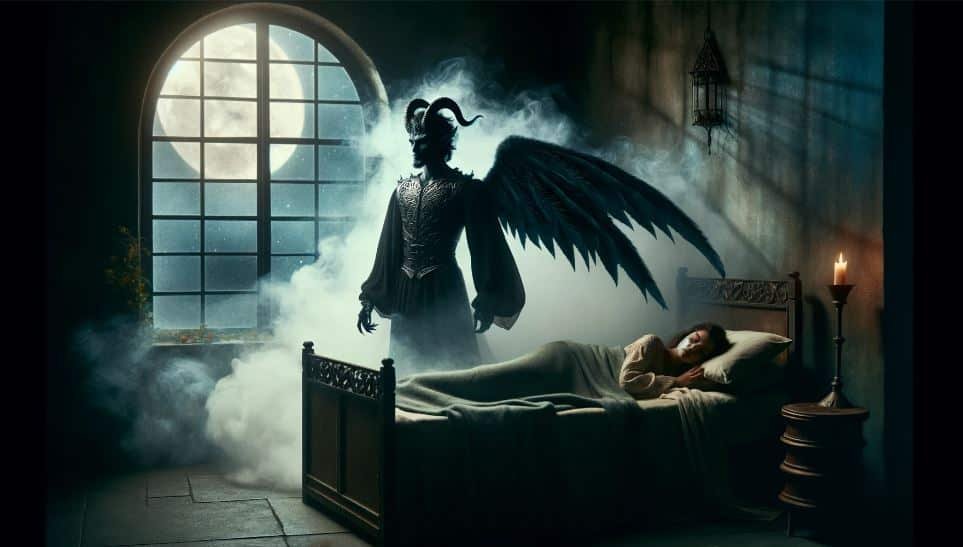
Incubi in Literature and Popular Media
Incubus Figures in Classical Literature
In classical literature, incubi are often depicted as demonic antagonists. For example, in Arthurian legends, Merlin is sometimes portrayed as the offspring of an incubus, granting him supernatural abilities.
Portrayals of Incubi in Contemporary Fiction and Cinema
Contemporary fiction has transformed the incubus from a horrifying demon to a misunderstood, often romantic figure. In cinema, they are frequently depicted as tragic heroes caught between two worlds, eliciting both fear and sympathy from the audience.
The Psychological Appeal of Incubi in Popular Culture
The incubus figure taps into deep psychological themes of desire and taboo. Their allure lies in the combination of danger and seduction, providing a safe space for the exploration of forbidden fantasies within the bounds of fiction and film.
Psychological Perspectives on Incubus Legends
The Role of Dreams in Incubus Encounters
Dreams are central to incubus legends, as encounters with these beings are often reported to occur during sleep. Such dreams can be vivid and disturbing, with the realistic sensation of an unseen presence often attributed to sleep paralysis, a state where dreamers’ vivid dreams intersect with their waking consciousness.
Incubi as Manifestations of the Subconscious
Psychologically, incubi can be interpreted as manifestations of the subconscious mind. They may embody hidden fears, desires, or repressed sexual energy. Their presence in dreams could represent an individual’s inner turmoil or unresolved emotional conflicts.
Sexuality and Taboo
The incubus myth is intricately linked with themes of sexuality and taboo. This connection might reflect society’s complex relationship with sexual desire, portraying it as something both sought after and feared, a dynamic that continues to intrigue and unsettle the human psyche.
Descriptions of Incubi
Documented Experiences with Incubi
Personal accounts of incubus encounters often share common elements, such as the feeling of being immobilized, a weight on the chest, and an overwhelming sense of presence. These experiences are frequently reported in various cultures, suggesting a shared psychological phenomenon.
Sensuality and Danger
Incubi are described as embodying a duality of sensuality and danger. Accounts often reflect a tension between allure and fear, with the incubus sometimes appearing as a lover, but one with malevolent intentions. This dichotomy plays into the enduring fascination with the myth.
Common Imagery in Dreams Involving Incubi
Dreams or accounts involving incubi often include:
- An attractive stranger with a hidden, menacing aspect.
- A feeling of paralysis and helplessness.
- An environment that is familiar yet distorted. These elements contribute to the unsettling yet compelling nature of incubus encounters in the human experience.
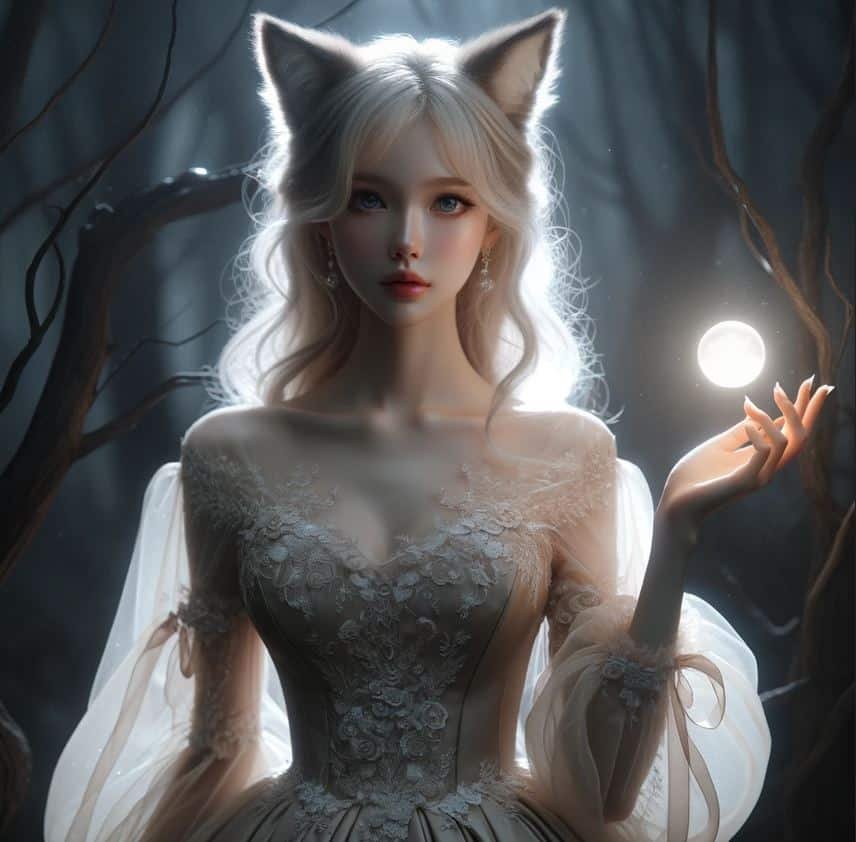
The Romanticization of Incubi
The Fascination with Incubi as Romantic Figures
Incubi have been romanticized in modern narratives, often depicted as misunderstood or tragic figures capable of genuine affection. This allure stems from the taboo nature of their mythology, blending fear with a forbidden type of romance that challenges conventional norms.
Power Dynamics in Mythical Incubus Relationships
Relationships with incubi in myths are characterized by complex power dynamics. The incubus is typically seen as a dominant figure wielding power over the human, often leading to a discourse on the implications of power imbalance in such romanticized supernatural encounters.
The Ethics of Romanticizing Predatory Myths
Romanticizing incubi raises ethical questions about the normalization of predatory behavior. Critics argue that it glosses over the non-consensual aspects inherent in the original myths, potentially minimizing the serious nature of such themes in real-life relationships.
The Dangers of Emotional Attachment to Incubi
Consequences of Engaging with Incubi
Historical and contemporary accounts caution against seeking relationships with incubi. Consequences described include:
- Emotional turmoil
- Psychological distress
- Social isolation
Psychological Effects of Incubus Encounters
Those who claim encounters with incubi often report lingering psychological effects. These can include:
- Nightmares
- Anxiety
- A pervasive sense of fear
Warnings from Historical Records on Incubi
Historical records serve as warnings against the dangers of engaging with incubi. They often detail adverse outcomes, suggesting that such entities were malevolent and their interactions with humans were to be avoided for one’s safety and well-being.
Procedures for Forming Bonds with Incubi
Traditional Rituals for Summoning Incubi
Throughout history, various cultures have documented rituals intended to summon incubi. These often include:
- Specific chants or incantations
- The use of particular herbs or incense
- Ritualistic drawings or symbols
These practices were often shrouded in secrecy due to their taboo nature.
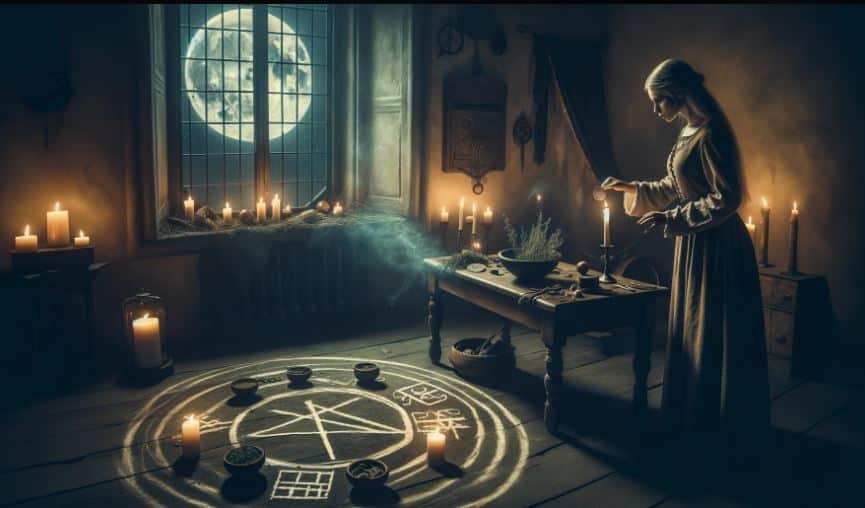
Symbolic Acts of Commitment to Incubi
Engaging with an incubus traditionally involved symbolic acts that signified commitment, such as:
- Offering personal tokens or items of significance
- Performing rituals during specific times, like midnight or during certain moon phases
- Reciting oaths or making vows
Precautions and Protective Measures in Supernatural Engagements
Historical texts that mention incubi often also advise on precautions:
- Protective circles or sigils
- Invocations of higher powers for protection
- Keeping sacred or blessed objects close
These measures were believed to safeguard individuals from potential harm.
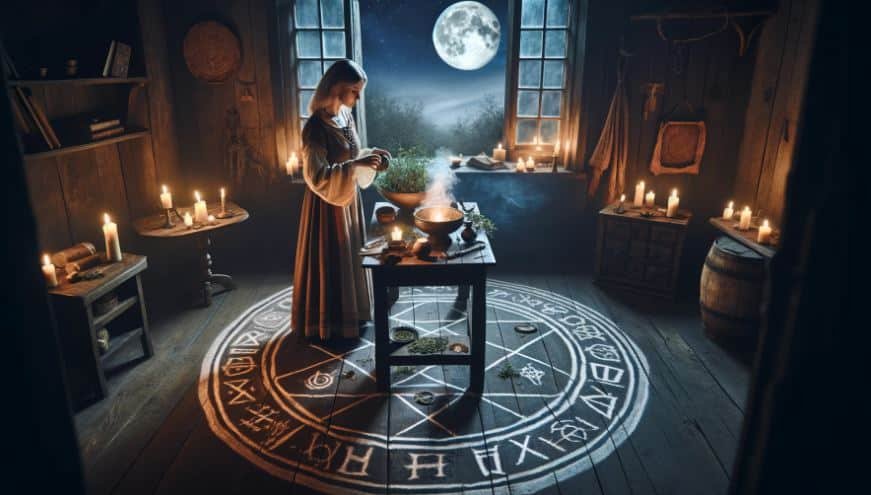
The Incubus in Contemporary Culture
Incubi as Characters in Modern Media
In modern media, incubi have been reimagined as characters in various forms, including:
- Protagonists in romantic fantasy novels
- Antagonists in horror films
- Complex beings in video games
Their portrayals range from malevolent to misunderstood.
Evolution of the Incubus Concept in the Public Eye
The concept of the incubus has evolved over time. Public perception has shifted from fear to fascination, with the incubus becoming a symbol of:
- Dark seduction
- Supernatural allure
- The interplay between danger and desire
Artistic Representations of Incubi
Artists have explored the incubus theme through:
- Paintings that depict their mythical form
- Sculptures that capture their seductive yet ominous nature
- Digital art that portrays contemporary interpretations of the legend
These representations often reflect societal attitudes towards themes of sexuality and the supernatural.
Addressing the Myth: Choice and Consent
Agency and Myth: Understanding Personal Choice
The concept of agency within the context of incubus myths highlights the importance of personal choice. It is critical to recognize:
- Every individual has the right to their personal boundaries.
- Myths and legends often reflect historical attitudes toward agency.
The Right to Resist: Saying No to Incubi
Resistance in incubus myths is a theme that represents the power to say no. It is essential to acknowledge:
- Consent is a non-negotiable aspect of any interaction, mythological or otherwise.
- The incubus myth can serve as an allegory for asserting one’s right to refuse.
Self-Empowerment Against Mythological Beings
Self-empowerment is a potent tool against the negative aspects of any mythological narrative. It involves:
- Recognizing one’s strength and autonomy.
- Understanding that myths do not dictate one’s actions or beliefs.
Concluding Thoughts on the Incubus Phenomenon
The Ongoing Legacy of the Incubus Myth
The incubus myth continues to be a part of cultural narratives due to its:
- Rich historical roots.
- Adaptability to contemporary themes.
- Ability to be reinterpreted across different media.
Reflecting on Our Fascination with the Incubus
Our fascination with incubi can be seen as a reflection of:
- The human quest to understand the unknown.
- The allure of the forbidden.
- The exploration of human desires and fears.
The Role of Incubi in Understanding Human Nature
Incubi in myths and folklore offer a unique lens through which to view human nature. They bring to light:
- The complexities of human sexuality and desire.
- The psychological underpinnings of our fears and fantasies.
- The societal constructs around morality and taboo.
-

 Celebrity4 weeks ago
Celebrity4 weeks agoIs YNW Melly Out Of Jail? What Is The YNW Melly Release Date, Career, Early Life, And More
-

 Sports4 weeks ago
Sports4 weeks agoMore Than Just a Game: How College Sports Can Shape Your Future
-

 Tech3 weeks ago
Tech3 weeks agoAI Software: Transforming the Future of Technology
-

 Tech3 weeks ago
Tech3 weeks agoAll About Com. Dti. Folder Launcher: Features, Benefits, Tips, And More













